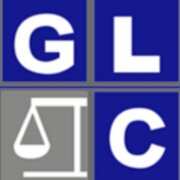Best Tax Lawyers in Doha
Share your needs with us, get contacted by law firms.
Free. Takes 2 min.
List of the best lawyers in Doha, Qatar
About Tax Law in Doha, Qatar
Tax law in Doha, Qatar, is governed by regulations that reflect its status as a wealthy Gulf nation with vast oil and gas resources. Historically, Qatar has had no personal income tax, making it an attractive destination for expatriates and foreign investors. The tax system primarily focuses on corporate taxes for businesses and foreign-owned entities engaged in activities within the country. The General Tax Authority (GTA) administers these laws, and companies are required to comply with specific regulations to ensure proper tax filings and payments. As Qatar continues to diversify its economy, understanding local tax laws is increasingly vital for businesses and individuals alike.
Why You May Need a Lawyer
Engaging a lawyer for tax matters in Doha can be crucial in several situations:
- Establishing or expanding a business in Qatar, where tax compliance is mandatory.
- Navigating complex corporate tax regulations for foreign entities operating in Doha.
- Addressing disputes or audits conducted by the General Tax Authority.
- Understanding the implications of international tax treaties that affect your business or personal financial situation.
- Advising on Value Added Tax (VAT) which has been implemented as part of the GCC VAT framework.
Local Laws Overview
The tax laws in Doha, Qatar, are structured mainly around corporate income tax for companies. The key aspects to be aware of include:
- The corporate tax rate is generally set at 10% of a company's taxable income, with certain exceptions and considerations for international tax treaties.
- Tax returns must be filed annually, and businesses are required to maintain proper accounting records.
- The implementation of Value Added Tax (VAT) at 5% is part of the GCC agreement, impacting certain goods and services.
- Withholding taxes may apply to certain payments made to non-residents, such as royalties and technical fees.
- Transfer pricing regulations require companies to conduct cross-border transactions on an arm's length basis.
Frequently Asked Questions
Is there personal income tax in Qatar?
No, Qatar does not impose personal income tax on individuals, making it an attractive location for expatriates and workers.
What is the corporate tax rate in Qatar?
The standard corporate tax rate is 10% of the company’s taxable income. However, this rate can vary depending on sector-specific regulations and special agreements.
Are there any VAT obligations for businesses in Qatar?
Yes, Qatar has implemented VAT at a standard rate of 5% in line with the GCC VAT Framework Agreement. Companies must register and comply with VAT regulations.
Do tax treaties impact taxation in Qatar?
Yes, tax treaties can affect taxation by providing relief from double taxation on certain types of income for foreign investors and companies.
What are the penalties for non-compliance with tax laws?
Penalties for non-compliance may include fines, interest on unpaid taxes, and legal action. It's crucial to comply with all filing and payment requirements to avoid such penalties.
How can disputes with the General Tax Authority be resolved?
Disputes can be resolved through negotiations, administrative appeals, or litigation. Legal assistance is often recommended to navigate these processes.
Are there any exemptions available under Qatari tax law?
Yes, certain sectors such as agriculture and non-oil-related exports may qualify for exemptions or reduced tax rates under specific conditions.
How does transfer pricing affect multinational companies in Qatar?
Transfer pricing regulations require multinational companies to transact with related parties at arm’s length prices to reflect true market value, hence affecting profit allocation and taxation.
What records must businesses maintain for tax purposes?
Businesses must maintain accurate accounting and financial records, including invoices, bank statements, and transaction documents to support their tax filings.
How is withholding tax applied in Qatar?
Withholding tax is levied on certain payments to non-residents, such as royalties, technical fees, and dividends. The rate can depend on existing treaties and the nature of the payment.
Additional Resources
For further assistance regarding tax in Doha, the following resources may be helpful:
- The General Tax Authority (GTA) is the principal body overseeing tax administration in Qatar.
- Qatar Financial Centre (QFC) provides a conducive environment for business with specific tax regulations and incentives.
- The Ministry of Finance regularly updates tax laws and provides guidelines for businesses and individuals.
- Professional organizations like the Qatar Chamber of Commerce can provide guidance and support related to business tax concerns.
Next Steps
If you need legal assistance with tax issues in Doha, consider these steps:
- Consult with a legal expert or tax advisor in Qatar to assess your specific needs and develop a compliance strategy.
- Stay informed about changes in tax legislation by subscribing to updates from relevant governmental bodies like the GTA and the Ministry of Finance.
- Ensure accurate bookkeeping and financial reporting to meet the compliance requirements.
- Consider joining business organizations or networks in Qatar that offer resources and support for tax-related matters.
Lawzana helps you find the best lawyers and law firms in Doha through a curated and pre-screened list of qualified legal professionals. Our platform offers rankings and detailed profiles of attorneys and law firms, allowing you to compare based on practice areas, including Tax, experience, and client feedback.
Each profile includes a description of the firm's areas of practice, client reviews, team members and partners, year of establishment, spoken languages, office locations, contact information, social media presence, and any published articles or resources. Most firms on our platform speak English and are experienced in both local and international legal matters.
Get a quote from top-rated law firms in Doha, Qatar — quickly, securely, and without unnecessary hassle.
Disclaimer:
The information provided on this page is for general informational purposes only and does not constitute legal advice. While we strive to ensure the accuracy and relevance of the content, legal information may change over time, and interpretations of the law can vary. You should always consult with a qualified legal professional for advice specific to your situation.
We disclaim all liability for actions taken or not taken based on the content of this page. If you believe any information is incorrect or outdated, please contact us, and we will review and update it where appropriate.















